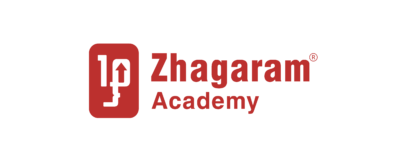If you’re feeling unfulfilled in your career or unsure of your professional aspirations, it may be time to assess your career strengths and weaknesses. Understanding your unique skill set can help you identify your true passion and find fulfillment in your professional life.
By recognizing your career strengths, you can leverage them to excel in your current role or explore new opportunities that align with your passions. Similarly, understanding your weaknesses can help you address areas for improvement and pursue ongoing development and growth.
In this article, we’ll explore strategies and resources to help you uncover your career strengths and weaknesses and discover your true passion. From self-reflection exercises to guidance from mentors, we’ll provide actionable steps to take towards achieving professional fulfillment and success.
Key Takeaways:
- Understanding your career strengths and weaknesses is crucial for finding career passion.
- Recognizing your strengths can help you excel in your current position or explore new opportunities.
- Assessing your weaknesses can help you address areas for improvement and foster ongoing growth and development.
- Self-reflection exercises and seeking guidance from mentors can aid in identifying your passions and career strengths.
- The journey towards discovering your career passion is ongoing and may involve exploring new career pathways and continuous growth and development.
Why Identifying Your Career Passion Matters
Identifying your career passion is crucial for achieving long-term career success. When you know your passion, you can choose a career that aligns with your interests and strengths, making work more enjoyable and fulfilling. This, in turn, increases the likelihood of success, because you are more likely to put in the effort necessary to excel in your field.
Exploring career options is an important step towards discovering your passion. Research different fields, take courses that interest you, and talk to professionals in industries that intrigue you. This will not only broaden your knowledge and understanding of different career paths, but also provide insight into what you enjoy doing, and what you are good at. Once you have identified your passion, you can start to develop a plan to pursue it.
To maximize your chances of success, you must also identify your career strengths. These are the skills and abilities that you excel at, and can use to your advantage in your chosen career path. By recognizing your strengths, you can maximize your potential and become a top performer in your field.
On the other hand, it is equally important to address your weaknesses. By identifying areas in which you may struggle, you can take steps to improve and make progress towards your career goals. This can involve taking courses, seeking mentorship, or simply devoting more time and effort to developing your skills.
Taking action to improve your weaknesses, and leverage your strengths, is key to maximizing your potential and achieving career success. By setting clear goals, developing a plan, and taking steps towards achieving them, you can build a fulfilling and rewarding career that aligns with your passion and utilizes your strengths.
Recognizing Your Career Strengths
Knowing your career strengths is essential for maximizing your potential and achieving professional success. Recognizing what you’re good at provides valuable insights into how you can excel in your chosen field and meet your career goals.
One effective way to identify your career strengths is through self-reflection. Take some time to evaluate what you enjoy doing in your job and what tasks you excel at. Some questions to consider include:
- What accomplishments are you most proud of in your career so far?
- What tasks come naturally to you, and what do you enjoy doing the most?
- What do your coworkers and managers consistently praise you for?
Another way to recognize your career strengths is to seek feedback from others. Ask your coworkers, managers, and mentors for their input on what they think your strengths and talents are. This can help you gain a better perspective on your abilities and identify areas where you excel that you may not have noticed before.
Once you have a good understanding of your career strengths, it’s important to leverage them to achieve your career goals. Think about how you can use your strengths to improve your job performance, take on new challenges, and pursue career opportunities that excite you.
Of course, it’s also essential to work on improving any weaknesses that may be holding you back. By combining self-reflection with a willingness to learn and grow, you can maximize your potential and achieve long-term success in your career.
Understanding Your Career Weaknesses
Every professional has strengths and weaknesses, and recognizing your weaknesses is just as important as identifying your strengths. Knowing your weaknesses can help you take steps to improve upon them and reach your full potential in your career. In this section, we explore how to understand your career weaknesses and make progress towards improving them.
Identifying Your Weaknesses
The first step in understanding your career weaknesses is identifying them. Take a moment to reflect on areas where you may struggle or receive feedback that you could improve upon. It may be helpful to enlist the help of others, such as a trusted colleague or mentor, to gain an outside perspective on areas where you could improve.
Once you have identified your weaknesses, take some time to reflect on why they exist and what you can do to improve upon them. It may be helpful to ask yourself questions such as:
- What specific actions or behaviors lead to this weakness?
- How does this weakness impact my professional performance?
- What steps can I take to improve upon this weakness?
Exploring Career Options
Recognizing your career weaknesses can also help you explore alternative career options that may better align with your strengths. For example, if you struggle with public speaking, a career in broadcasting may not be the best fit for you, but perhaps a career in writing or behind-the-scenes production would be a better fit.
Take some time to research and explore different career options that may better align with your strengths. Don’t be afraid to step outside of your comfort zone and try something new.
Improving Your Weaknesses
Once you have identified your weaknesses and explored alternative career options, it’s time to take action to improve upon them. This may include seeking out training or education in specific areas, practicing skills that you struggle with, or seeking feedback from others on your progress.
Remember, improvement takes time and effort, but with dedication and persistence, you can make progress towards addressing your weaknesses and achieving your professional goals.
The Importance of Self-Reflection
Self-reflection is an essential tool for improving your career weaknesses and setting yourself on a path for growth and success. By taking the time to look closely at your thoughts, feelings, and behaviors, you can gain valuable insights into your motivations, your passions, and your areas of strength and weakness.
Self-reflection can take many forms, from journaling to meditation to seeking feedback from others. One popular exercise is to make a list of your accomplishments and challenges, then reflect on what qualities or skills helped you succeed or held you back. Another approach is to ask trusted friends, family members, or colleagues for feedback on your strengths and blind spots.
Regardless of the method you choose, self-reflection can be a powerful ally in your career growth journey. It can help you identify areas that need improvement, set specific goals for personal and professional development, and ultimately position you for greater success and fulfillment in your chosen field.
Assessing Your Current Career Path
It’s never too late to evaluate your current career path and explore alternative options that align better with your passion and strengths. Here are some steps to get you started:
- Reflect on your current job and assess how satisfied you are with your professional life.
- Identify your career strengths and consider how they can be applied to different job roles or industries.
- Research alternative career options that align with your passions and skills.
- Explore internships or part-time work in your desired field to gain practical experience and insights.
- Network with professionals in your desired industry to gain valuable advice and guidance.
Remember, regularly assessing your current career path is essential to your professional growth and fulfillment. By exploring new opportunities and aligning your career with your passion and strengths, you can achieve long-term success.
Seeking Guidance and Feedback
Identifying your career strengths and weaknesses is a crucial step in finding professional fulfillment. However, it can be challenging to recognize these aspects of yourself without an external perspective. Seeking guidance and feedback from mentors, coaches, or trusted colleagues can provide valuable insights and help you develop a clearer understanding of your career aspirations and potential.
By reaching out to others, you can gain a fresh perspective on your career strengths and identify areas where you may need to improve. Constructive feedback can help you explore new career options and pathways as you continue to hone your skills.
To make the most of this feedback, be open-minded and ask specific questions. Use the insights gained from these conversations to identify your career strengths, explore new opportunities, and improve upon your weaknesses.
Taking Action to Maximize Your Potential
Maximizing your career potential requires identifying your unique strengths and weaknesses. Once you have gained a deeper understanding of these areas, you can take actionable steps towards professional fulfillment and success. The following career success strategies will help you put your strengths to work while addressing weaknesses:
|
Steps to Maximize Your Potential |
How to Leverage |
|
Set clear career goals and priorities |
Emphasize your strengths to achieve your goals while improving your weaknesses along the way. |
|
Find a mentor or career coach |
Gain guidance and support to navigate your career path and develop professionally. |
|
Invest in professional development opportunities |
Continue learning to stay on top of industry trends, improve your skills, and elevate your career potential. |
|
Collaborate with colleagues and network with professionals |
Engage with others in your field to build valuable connections, gain insights, and identify new opportunities for growth. |
By implementing these career success strategies, you will be able to maximize your potential while achieving greater professional fulfillment. Remember to focus on your strengths, address your weaknesses, and continuously invest in your career development.
Exploring New Career Options and Pathways
Now that you have a better understanding of your career strengths and passions, it’s time to explore new career options and pathways. This can be a daunting task, but with the right resources and guidance, you can confidently navigate the process.
Start by researching different industries and job roles that align with your passions and strengths. Look for companies and organizations that value the same things that you do. Network with professionals in your desired field and seek advice from mentors and career coaches. Attend events and conferences to gain industry insights and learn from experts in your field.
Another great way to explore new career options is to try new things. Take on new projects and responsibilities at work, or volunteer for organizations that align with your passions. This can help you gain valuable experience and expand your skill set, ultimately leading to new career opportunities.
Remember, exploring new career options and pathways is an ongoing process. Be open to new possibilities, stay curious, and continue to grow and develop throughout your career.
Continuous Growth and Development
Investing in continuous growth and development throughout your career is crucial. No matter how skilled or successful you are, there’s always room for improvement. By identifying and addressing your career weaknesses, you can take concrete steps towards professional growth and development.
Self-reflection is a powerful tool for identifying your weaknesses. Take some time to evaluate your performance at work and reflect on areas where you could improve. Perhaps you need to work on your time-management skills, or you struggle with public speaking. Identifying your weaknesses is the first step towards addressing them.
Once you’ve identified your weaknesses, you can start taking action to address them. Consider enrolling in a training program or taking a course to develop new skills. Seek out feedback from a mentor or coach who can provide you with constructive criticism and advice.
|
Strategies for improving career weaknesses: |
|
Set goals: Identify specific goals for improving your weaknesses and track your progress towards achieving them. |
|
Develop a growth mindset: Embrace mistakes and setbacks as opportunities for learning and growth. |
|
Practice, practice, practice: The more you practice a new skill, the more confident and competent you’ll become. |
Remember, improving your weaknesses is an ongoing process. Don’t get discouraged if you don’t see immediate results. With dedication and persistence, you can overcome your weaknesses and achieve your professional goals.
Conclusion
Discovering your career passion, recognizing your strengths, and addressing your weaknesses are crucial steps in achieving professional fulfillment and success. By understanding your career strengths, you can leverage them to excel in your chosen field. Understanding your career weaknesses can help you identify areas for improvement and growth. Committing to ongoing self-reflection and development is essential for maximizing your potential and achieving your career aspirations.
Remember, it’s never too late to explore new career options and pathways that align with your passions and strengths. Seek guidance and feedback from trusted colleagues, mentors, or coaches to gain further insight into your career potential and opportunities for growth. By taking action to address your weaknesses and leverage your strengths, you can make progress towards achieving career success and fulfillment.
So take the time to reflect on your career passion, strengths, and weaknesses. Evaluate your current career path and explore new opportunities. Commit to ongoing growth and development to achieve professional fulfillment and success.
Book your Career Counseling Appointment with Certified Career Analyst & Counselor Click here
FAQ
Why is it important to uncover your career strengths and weaknesses?
Understanding your career strengths and weaknesses is crucial because it allows you to align your career choices with your abilities and passions. It helps you make informed decisions, maximize your potential, and find fulfillment in your professional life.
How can I identify my career strengths?
To identify your career strengths, start by reflecting on activities that come naturally to you and bring you joy. Pay attention to the tasks where you excel and receive positive feedback. Conduct self-assessments, seek feedback from others, and consider using career assessments or working with a career coach to gain clarity.
What should I do about my career weaknesses?
Once you have identified your career weaknesses, you can work on improving them. Focus on developing specific skills or seeking additional training in areas where you feel less confident. Consider collaborating with colleagues who excel in those areas, or hire a mentor or coach to guide you in addressing and improving your weaknesses.
What role does self-reflection play in uncovering career strengths and weaknesses?
Self-reflection is key to gaining awareness of your career strengths and weaknesses. It involves introspection, journaling, and asking yourself important questions about your desires, values, and goals. Engaging in self-reflection helps you understand your passions and areas where you may need to grow, leading to greater career satisfaction.
How can I assess my current career path?
To assess your current career path, evaluate whether it aligns with your passions, strengths, and long-term goals. Analyze your job satisfaction, growth opportunities, values alignment, and work-life balance. Consider conducting informational interviews with professionals in desired fields, volunteering, or taking courses to explore alternative career options.
Should I seek guidance and feedback to uncover my career strengths and weaknesses?
Yes, seeking guidance and feedback is invaluable in uncovering your career strengths and weaknesses. Find mentors or trusted colleagues who can provide insights, advice, and constructive feedback. Their perspectives can help you gain clarity, validate your strengths, and identify areas of improvement.
How can I maximize my potential in my career?
To maximize your career potential, leverage your strengths by aligning your responsibilities with them. Seek opportunities for growth and development, such as taking on challenging projects or pursuing continuing education. Set ambitious goals, create a professional network, and consistently evaluate and adapt your career path to ensure it aligns with your passions.
How do I explore new career options and pathways?
To explore new career options and pathways, take time to research different industries and job roles. Consider conducting informational interviews, attending career fairs, or shadowing professionals in various fields. Utilize online resources such as career assessment tools or job search websites to gain insights into potential opportunities that align with your interests and strengths.
What should I do for continuous growth and development in my career?
Continuous growth and development are essential for long-term career success. Engage in ongoing self-reflection, seek learning opportunities, and pursue professional development programs or certifications. Embrace challenges, take on new projects, and regularly assess and address your weaknesses to foster continuous improvement and personal growth.





